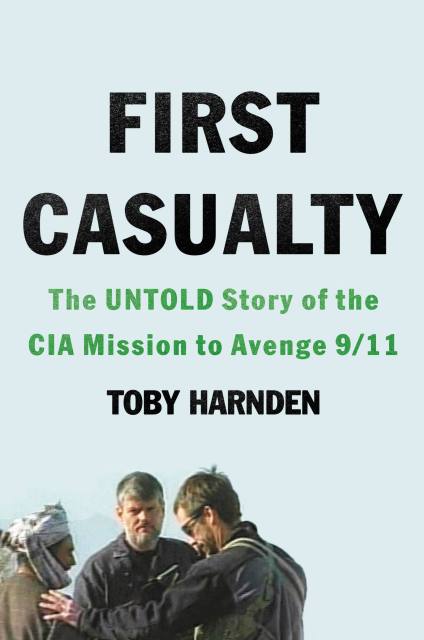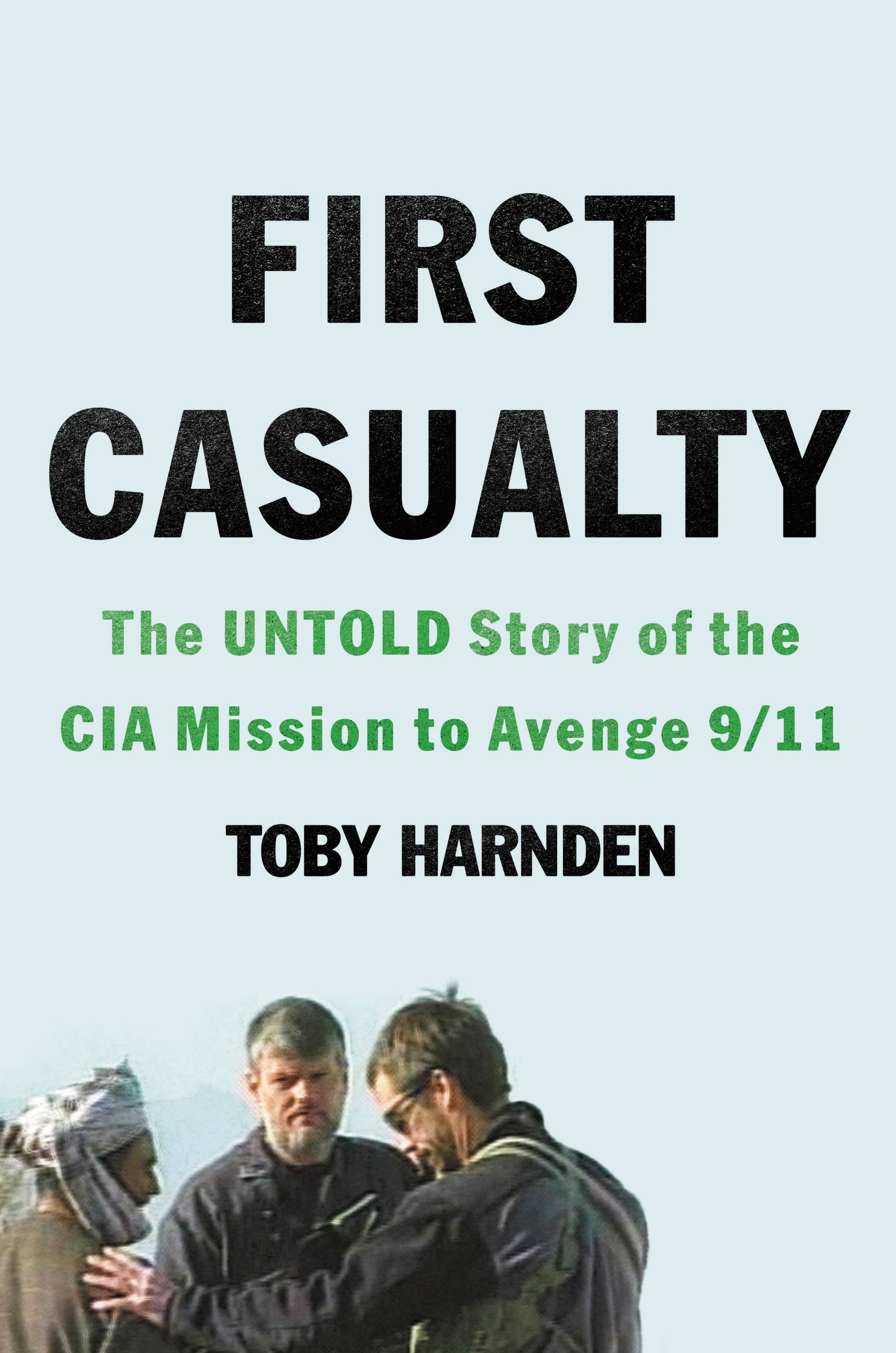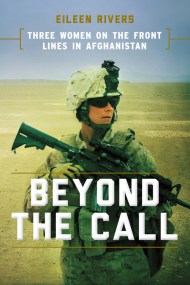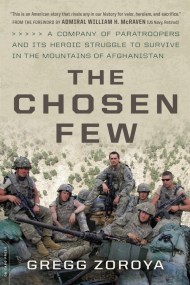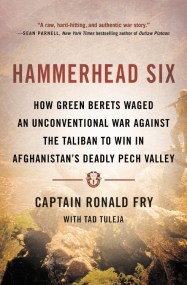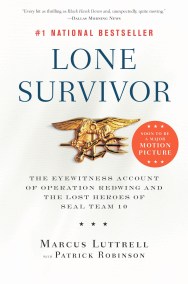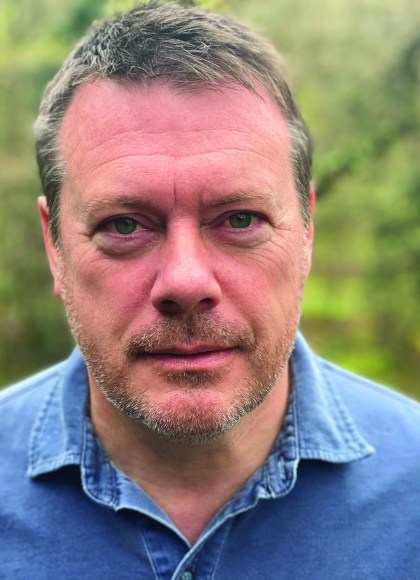By clicking “Accept,” you agree to the use of cookies and similar technologies on your device as set forth in our Cookie Policy and our Privacy Policy. Please note that certain cookies are essential for this website to function properly and do not require user consent to be deployed.
First Casualty
The Untold Story of the CIA Mission to Avenge 9/11
Contributors
By Toby Harnden
Formats and Prices
- On Sale
- Sep 7, 2021
- Page Count
- 380 pages
- Publisher
- Little, Brown and Company
- ISBN-13
- 9780316540964
Price
$11.99Price
$15.99 CADFormat
Format:
- ebook $11.99 $15.99 CAD
- Hardcover $32.00 $40.00 CAD
- Audiobook Download (Unabridged) $31.99
- Trade Paperback $21.99 $28.99 CAD
This item is a preorder. Your payment method will be charged immediately, and the product is expected to ship on or around September 7, 2021. This date is subject to change due to shipping delays beyond our control.
Buy from Other Retailers:
An award-winning journalist reveals the dramatic true story of the CIA's Team Alpha, the first Americans to be dropped behind enemy lines in Afghanistan after 9/11.
America is reeling; Al-Qaeda has struck and thousands are dead. The country scrambles to respond, but the Pentagon has no plan for Afghanistan—where Osama bin Laden masterminded the attack and is protected by the Taliban. Instead, the CIA steps forward to spearhead the war. Eight CIA officers are dropped into the mountains of northern Afghanistan on October 17, 2001. They are Team Alpha, an eclectic band of linguists, tribal experts, and elite warriors: the first Americans to operate inside Taliban territory. Their covert mission is to track down Al- Qaeda and stop the terrorists from infiltrating the United States again.First Casualty places you with Team Alpha as the CIA rides into battle on horseback alongside the warlord Abdul Rashid Dostum. In Washington, DC, few trust that the CIA men, the Green Berets, and the Americans’ outnumbered Afghan allies can prevail before winter sets in. On the ground, Team Alpha is undeterred. The Taliban is routed but hatches a plot with Al-Qaeda to hit back. Hundreds of suicidal fighters, many hiding weapons, fake a surrender and are transported to Qala-i Jangi—the “Fort of War.”
Team Alpha’s Mike Spann, an ex-Marine, and David Tyson, a polyglot former Central Asian studies academic, seize America’s initial opportunity to extract intelligence from men trained by bin Laden—among them a young Muslim convert from California. The prisoners revolt and one CIA officer falls—the first casualty in America’s longest war, which will last two decades. The other CIA man shoots dead the Al-Qaeda jihadists attacking his comrade. To survive, he must fight his way out against overwhelming odds.
Award-winning author Toby Harnden gained unprecedented access to all living Team Alpha members and every level of the CIA. Superbly researched, First Casualty draws on extensive interviews, secret documents, and deep reporting inside Afghanistan. As gripping as any adventure novel, yet intimate and profoundly moving, it tells how America found a winning strategy only to abandon it. Harnden reveals that the lessons of early victory and the haunting foretelling it contained—unreliable allies, ethnic rivalries, suicide attacks, and errant US bombs—were ignored, tragically fueling a twenty-year conflict.
"Masterful, complex, and heartfelt, from the deeply personal to the critically strategic. Captures many lessons on many levels." —Ambassador Hank Crumpton, former senior CIA officer
-
A Good Morning America September Buzz Pick
-
"Run, don’t walk to pick this up. Toby Harnden has done a masterful job...What a powerful read."James Gagliano, former senior FBI agent
-
"This is Afghanistan's Black Hawk Down...Harnden’s account is both well-informed and panoramic."Daily Telegraph (UK)
-
"The hard-to-imagine drama, in the hands of another narrator, could easily turn overwrought; in this book, it is not. First Casualty is rife with heroic moments. But it is the variety of the human reactions in those moments, and afterward, that separates this book from others. Fear, combat fatigue, and sadness appear often in the narrative...This book is compelling, sometimes disturbing, but in a necessary way."Philip Mudd, former senior CIA officer, The Cipher Brief
-
"Storytelling at its best—educational and inspirational. A unique, important, and enduring history captured for all who want to learn."Ambassador Hank Crumpton, former senior CIA officer
-
"Harnden...secured a coup by persuading the CIA to give him access...a terrific action narrative."Max Hastings, The Sunday Times of London
-
“First Casualty reads like a Tom Clancy thriller, yet every word is true, and painstakingly researched. This is modern warfare close-up and raw: the pity, the heroism, the cruelty, and very occasionally some moments of glory too, as human beings are pushed to their furthest limits of endurance, and beyond. Harnden tells the extraordinary story of the battle of Qala-i-Jangi with verve, intelligence, acute analysis and flashes of ironic wit. It would make a terrific movie.”Andrew Roberts, author of Churchill: Walking with Destiny
-
"Vividly describes the rollicking adventures Langley’s men enjoyed amid the blood, dust and tribesmen."Bloomberg News
-
"An absolutely gripping read"Brad Thor
-
"This is an amazing book - highly recommended."Marc Ambinder
-
"Harnden’s scoop is to have convinced the CIA to give him access to its key men from those early days.”The Spectator
-
"First Casualty is the closest most readers will come to really knowing a spy; Harnden intimately portrays who these men were and are as America attempts to extract itself from its longest war."James Pekoll, Booklist
-
"Harnden skillfully interweaves dramatic action sequences with the backstories of the book’s central figures, and briskly highlights the failures of U.S. policy in Afghanistan. Readers will be swept up in this little-known chapter of America’s 'forever war.'"Publishers Weekly
-
“The heart of Harnden’s readable book is the Battle of Qala-i Jangi, a bloody, six-day revolt of around 400 al Qaeda prisoners in a 19th-century fortress designed by British engineers during earlier imperial adventures in northern Afghanistan…Harnden’s scoop is to have convinced the CIA to give him access to its key men from those early days.”Justin Marozzi, The Spectator
-
“Very powerful and important” -Praise for Dead Men RisenJake Tapper, author of The Outpost
-
“Extraordinary in its research, scope, empathy, and raw emotive power” -Praise for Dead Men RisenBing West, author of The Wrong War
-
“Toby Harnden’s remarkable book…is both compelling and visceral” -Praise for Dead Men RisenOrwell Prize statement
-
“Courageous journalism and compulsive reading” -Praise for Bandit CountryThe Guardian
-
“Harnden has done a masterful job…A triumph” -Praise for Bandit CountryIrish Times
-
“A formidable achievement…Essential reading” -Praise for Bandit CountrySunday Business Post
Newsletter Signup
By clicking ‘Sign Up,’ I acknowledge that I have read and agree to Hachette Book Group’s Privacy Policy and Terms of Use
